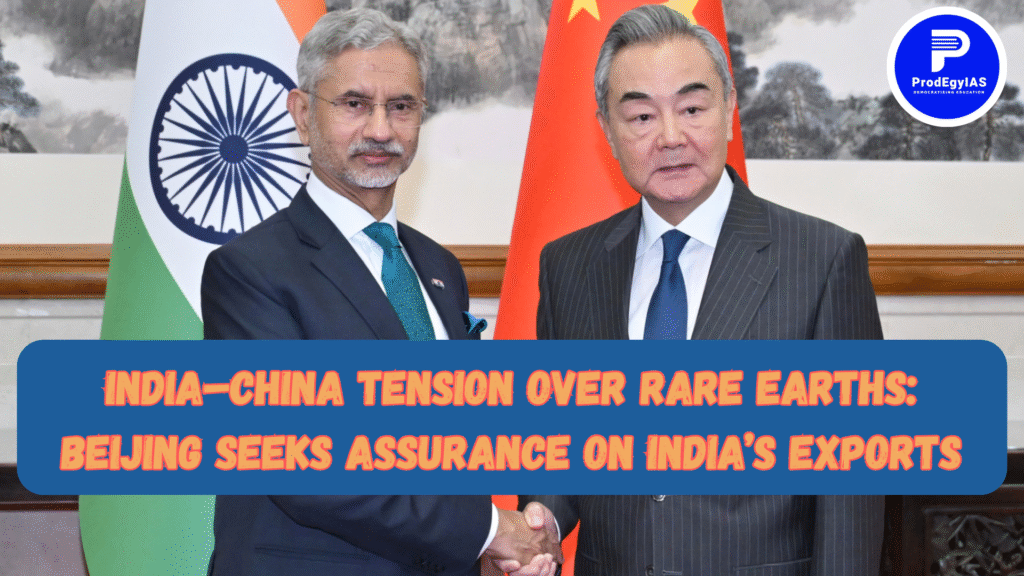
India–China Tension over Rare Earths UPSC has gained significance as India has been formally requested by China to guarantee that its exports of heavy rare earth magnets will not be diverted to the United States. This tension arises because India exports vital minerals essential for cutting-edge technologies. In response, Indian businesses have submitted end-user certificates attesting to domestic use, reflecting India’s careful balancing of strategic autonomy and trade commitments.
There are broader ramifications to this episode:
- Sovereign supply chains and strategic minerals: Defence electronics, renewable energy sources and electric cars all depend on rare earth elements. China’s efforts to regulate their global flow highlight how the mineral supply has evolved into a geopolitical tool.
- India’s Balancing Act:India must strike a balance between meeting China’s requests and maintaining its independence in trade decisions.
- Policy dimension: To prevent reliance on other countries, India needs to improve its export control systems, traceability of mineral flows, and local refining capabilities.It connects supply chain, self-reliance (Atmanirbhar Bharat) and strategic autonomy.
In conclusion, the ongoing struggle for control of the mineral foundation of future technologies is reflected in the China-India rare earths talks, which is more than just a trade dispute.
UPSC viewpoint: pertinent to both GS II (Foreign Policy) and GS III (Economy, Science & Technology, Industry).
UPSC General Studies Paper Preparation
| Topic | |
| UPSC Syllabus | UPSC Free Notes |
| UPSC Optional Subjects | Khushhali Solanki (AIR 61, UPSC CSE 2023) |
Public Administration Optional Exam Preparation
Topic | |
About the Author: Jyoti Verma



